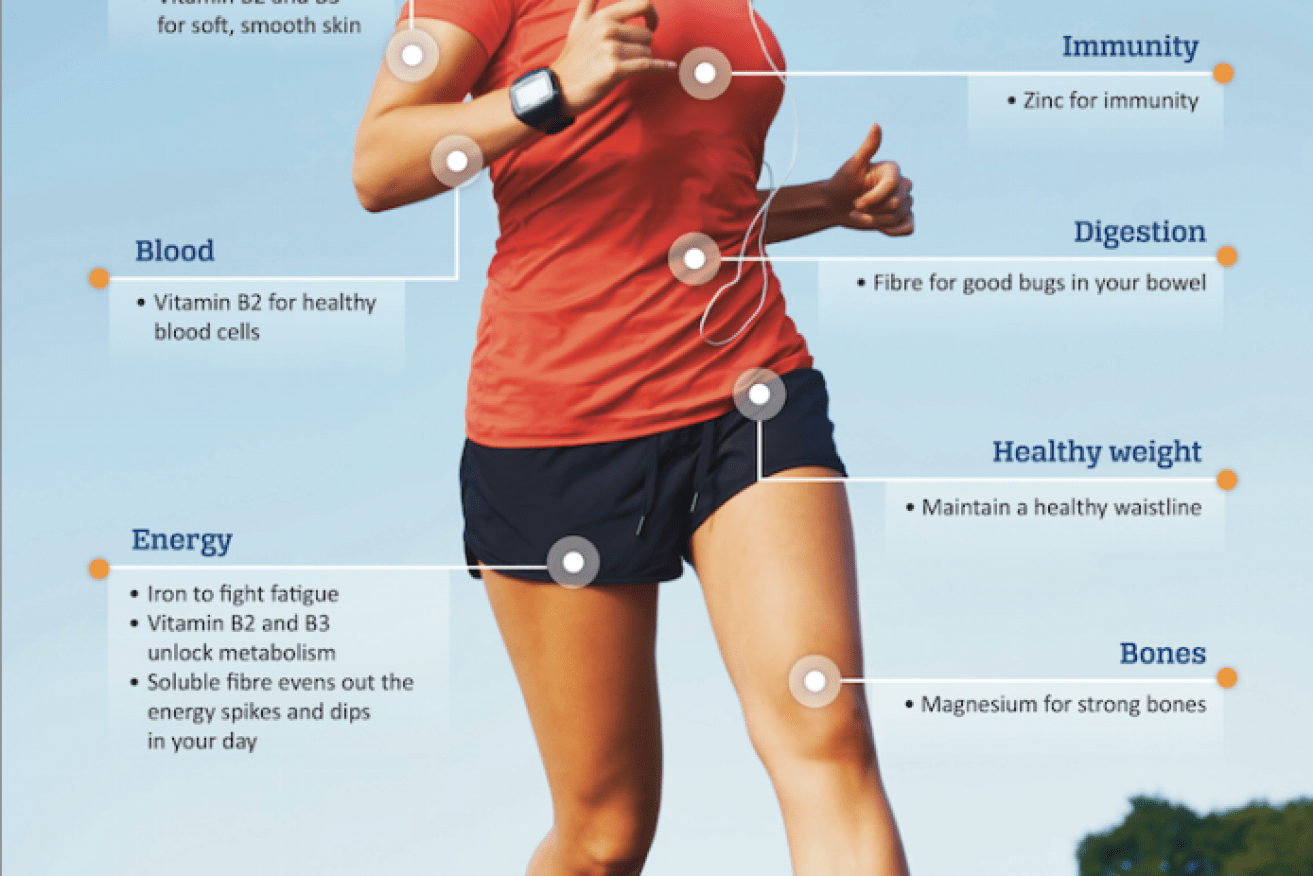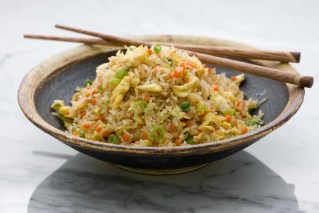Nine surprising benefits of eating whole grains


We all know brown, grainy bread is better than white, but do any of us really know why?
The humble whole grain is a staple in any healthy diet, though most people don’t know what they are or why exactly we’re meant to be eating them.
• DASH: your guide to the world’s most popular diet
“A whole grain is simply an unrefined grain,” nutritionist and dietitian Sarah Leung explains.
“The nutrients of a grain are quite rich, but they’re all kept in the shell or husk.
“When a grain is refined the husk is removed, therefore removing all the minerals, vitamins and fibre. All you’re eating is carbs.”
If you keep the shell, you get more bang for your grain by retaining all the super-powered vitamins and nutrients.
How much should you be eating?
According to Australian dietary guidelines, the average adult should be consuming between six and nine servings of whole grains per day. Most Australians consume less than half of this amount.
One serving of whole grains is equal to one slice of bread, half a cup of rice or pasta, two-thirds of a cup of cereal, half a cup of porridge or one small English muffin.

Whole grain serving size guidelines from EatForHealth.gov.au.
When choosing which whole grain foods to eat, Ms Leung suggests putting some thought into it.
Steel-cut oats are far better than instant porridge, brown basmati is preferable to white rice and multigrain or rye bread is higher in nutrients than white bread.
“Make sure you check the fibre content as well,” Ms Leung advises.
“Some breads can look very seedy but are deceptively low in fibre – aim for above 7.5g of fibre per 100g.”
What’s in it for you?
According to the Grains and Legumes Nutrition Council of Australia, these are the 10 surprising benefits of eating whole grains:
1. Strong teeth: the magnesium found in whole grains is crucial for regulating calcium and forming enamel which in turn decreases the likelihood of getting nasty cavities.
2. Shiny hair and nails: whole grains contain zinc, which strengthens and builds the connective tissue in your hair and nails. More zinc means shinier hair and strong nails – no more annoying breaks while typing!
3. Bright eyes: vitamin B2, found in grains, is essential for eye health and good vision.
4. Metabolism: the protein and fibre content of whole grains keeps your metabolism running, creating natural energy to sustain you throughout the day. You will feel less fatigued as a result.
5. A better brain: we’re stuck with the brains we’re born with, but that doesn’t mean you can’t boost yours with zinc, magnesium and iron, all of which decrease the risk of cognitive impairment and may protect you from diseases like Alzheimer’s.
6. Healthy blood: vitamin B2 also helps your body to produce red blood cells, which transport essential nutrients around your body.
7. A healthy immune system: the iron and zinc found in whole grains are famous for their bug-fighting properties.
8. Glowing skin: vitamins B2 and B3 keep skin soft and smooth.
9. Strong bones: want to stay active well into your old age? Along with calcium, zinc and magnesium are your ticket to avoiding brittle bones and osteoporosis.









